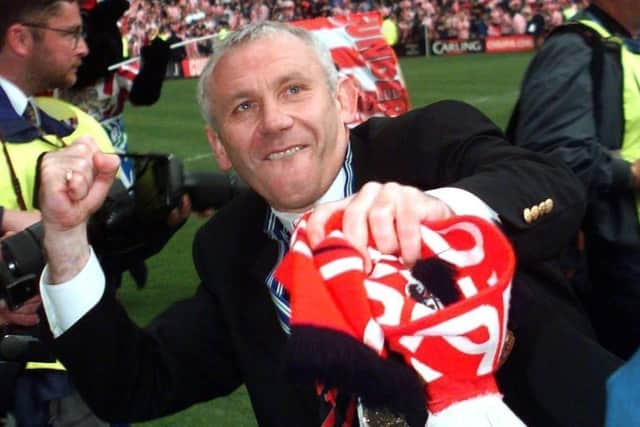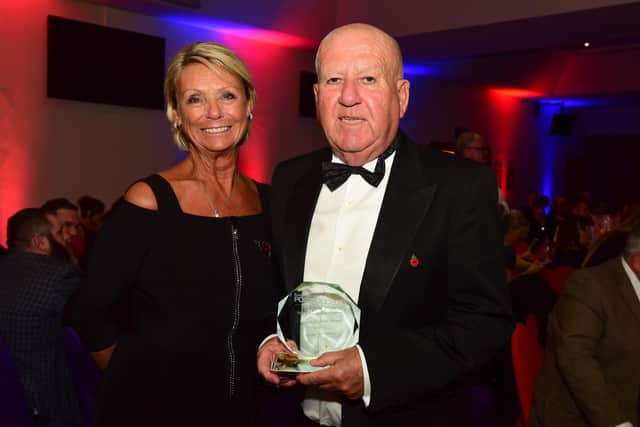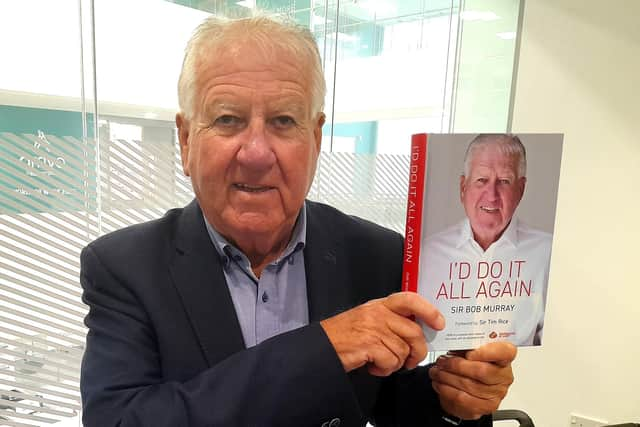SAFC Chairman Sir Bob Murray recently released his captivating new autobiography, titled “I’d Do It All Again,” which he personally funded, with all proceeds dedicated to The Foundation of Light, as reported by the Sunderland Echo.
In a discussion about the BBC documentary “Premier Passions,” Sir Bob credits Lesley Callaghan, a former SAFC director, for its success. He humorously mentions that his frequent visits to London made him so recognizable that even cockney taxi drivers would say “Bob Murray” when someone was in a hurry. Lesley believed in transparency and said there was nothing to hide, making the documentary, in Sir Bob’s opinion, the best of its kind due to its genuine nature and lack of editorial influence from SAFC. He reiterates his sentiment, stating, “I’d Do It All Again.”
Sir Bob then reflects on his relationship with Peter Reid, the former SAFC manager. Initially, Reid had a challenging reputation due to his time at Manchester City, and the two became closer after a controversial player acquisition. Bob emphasizes his belief in supporting or sacking a manager, acknowledging that they worked hard to improve their relationship. He recalls taking Peter out for meals regularly and even meeting him at a game after his departure. The low point was when Reid was sacked, and Bob clarifies that it wasn’t a mistake, given the significant spending on players and contracts, which deteriorated over time.

Discussing investments, Sir Bob mentions the North Stand extension in 2001, which Peter Reid wasn’t pleased with. Bob counters by expressing his dissatisfaction with Reid’s spending on certain players. He references fan attendance during televised games as a factor that influenced his perspective on investments.
The conversation then shifts to a personal anecdote from 1983, when Sir Bob and his wife narrowly avoided a helicopter crash en route to the Scilly Isles. They opted for a ferry instead, a decision that may have saved their lives. This event, not widely known, occurred just before Sir Bob’s involvement with the club.
Sir Bob’s autobiography has resurfaced both positive and challenging memories. He admits to experiencing moments of anxiety but emphasizes that the pressure as chairman was more intense, as the responsibility rested squarely on his shoulders. In contrast, his kitchen business allows for greater control.

Reflecting on his departure from the club 17 years ago, he believes it was a necessary decision, as the role of chairman was all-consuming. He notes that the current chairman, Kyril Louis-Dreyfus, is deeply committed, whereas his predecessor, Ellis Short, may not have been as dedicated.
Looking to the future, Sir Bob expresses his commitment to The Foundation of Light, highlighting the organization’s efforts in various areas, including mental health and community support.
He shares his transformation from a heavy smoker to a marathon runner, prompted by a determination to quit smoking in his 40s. Running served as a stress and anxiety outlet and ultimately led him to become an accomplished marathon runner.
Sir Bob closes by stating that his family is doing well, with his son and grandsons passionately supporting Sunderland. He paints a heartwarming picture of breakfast at his home, with five high-chairs and the next generation of Sunderland supporters in the making.

